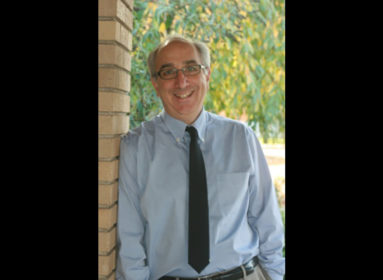
By Cindy Mindell
In just a month’s time, hundreds of thousands of people around the world will mark the third annual Character Day, a global initiative exploring the science of character development from various perspectives.
The Sept. 22 event will engage a range of groups – from schools and congregations, to JCCs and museums, and to businesses and organizations, via free resources including short films and printed discussion materials, as well as an online interactive conversation. Among the short films on offer is The Making of a Mensch, which has been translated into 14 languages. Produced in 2015, the film focuses on Jewish values that are universal, like becoming a good person, practicing kindness and tzedakah, and taking care of family and the environment.
Even the U.S. Department of State is involved, inviting embassies and educators around the world to participate.
Carmel Academy in Greenwich is among the schools taking part in the program that aims to teach schoolchildren how to be a mensch. It is the only Connecticut day school among the state’s 11 participating schools.
Character Day and related materials are the brainchild of Let It Ripple Film Studio, a non-profit organization that uses film, technology, discussion materials, and live and virtual events to engage people in conversation and action around complicated subjects that shape 21st-century life. Let It Ripple is led by Tiffany Shlain, an Emmy Award-nominated filmmaker and founder of The Webby Awards. Shlain has received more than 70 awards and distinctions for her films and work, named on NPR’s list of Best Commencement Speeches and by Newsweek as “one of the women shaping the 21st century.”
“As cliché as it sounds, Character Day at Carmel Academy is every day,” says Rabbi Isaiah J. Rothstein, MSW, spiritual and experiential educator at Carmel.“
For several years, we have been following the Brit Middot — our own ‘Values Covenant’ that is made up of seven essential values that we believe to be the bedrock of Jewish practice, and are standards and guiding principles for our students, teachers, and administration to live by, both in and outside of the classroom.”
Rothstein finds that values-based learning is most successful when it is hands-on and student-led. Carmel’s Ruach Enterprises clubs are organized by grade, with student teams that focus on different values throughout the year and engage in peer-led learning. For example, the Gratitude Gurus focus on Hakarat HaTov, acknowledging others for the good that they do.
The Peacemakers promote the value of Rodef Shalom, or conflict resolution, generating “peace-posts” for their peers to read on how to create harmonious environments.
During Character Day, Carmel Academy will use
elements of the Let It Ripple curricula provided and other resources already in use by the Ruach Enterprises clubs.
“One of the messages we hope to convey to our students is that our values are the lens through which we view the world and make decisions,” Rothstein says. “We are presented with difficult choices every day, and through the values we have, we aim to find the best solutions.”
Rothstein and his fellow staff-members also intend to use the Character Day resources to interact with other participant groups who also work together as a community to strengthen individual character. “As a global Jewish community, we seldom find organizations partnering together to build consciousness around Jewish values,” Rothstein says. “That is one reason why Carmel Academy is excited to participate in Character Day.”
The impetus behind the global event aligns with the Media Production program at Central Connecticut State University, whose students will take part in Character Day. Led by Yonty Friesem, a professor in the Department of Communication, Friesem’s students will watch Shlain’s films and produce their own videos on character.
An Israeli native who joined the CCSU faculty last August, Friesem focuses in his work on “digital citizenship,” teaching respect and responsibility in the digital age. His use of “digital empathy” in formal and informal educational settings applies digital tools in conflict management and in character building. Friesem applies these techniques with various groups in conflict: Jews and Arabs, Catholics and Protestants from Northern Ireland, and tribes in Uganda. He also uses digital tools in his work with foster children and elementary-school students, as well as teachers.
“We’re going to talk about the different character strengths in Tiffany Shlain’s films and how they are related to the power of digital media,” he says of the project. “I want the students to understand how digital media can enhance those strengths, and how, as responsible media professionals, they can apply them in their own work.”
Last year’s Character Day attracted participation from more than 125 countries and 3,000 cities.
“I believe people are craving conversation around character – we’re seeing it through the wonderful reemergence of Mussar [character development] across the Jewish spectrum,” Shlain says. “There is great power in bringing these conversations together from different perspectives, from science to business, from secular education to Jewish wisdom. At the core, we’re really talking about the same thing: developing our character to bring more joy, meaning, and purpose to our lives.”
For more information: characterday.org.







 Southern New England Jewish Ledger
Southern New England Jewish Ledger













